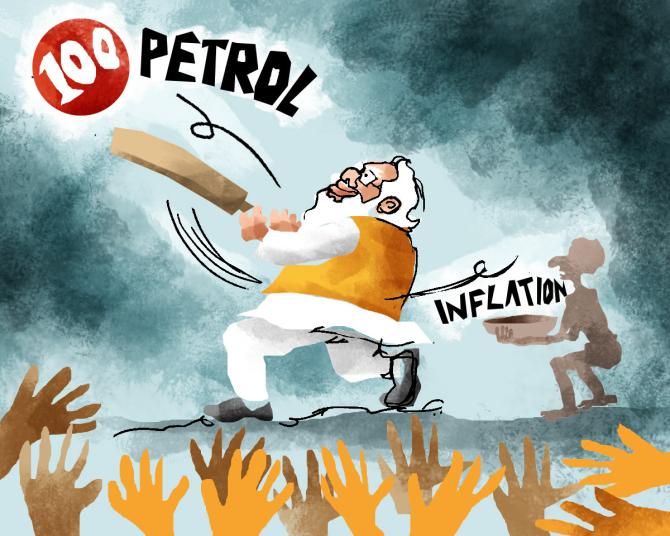High fuel cost adds to the cost of almost all goods and services, whether it is food or consumer durables, thereby hurting the poorest the most.

An average Indian spends no more than Rs 1.3 lakh per year, according to official statistics.
This is close to what an average Indian earns annually.
At this level of per capita income today, one litre of petrol costs one-third of an average Indian’s daily income (Delhi prices), making it highly unaffordable.
People in most other Asian and emerging countries find it more affordable.
For the vast majority which earns less than the average per capita income, the unaffordability would be even higher.
The jump in oil prices — Brent crude rallied nearly 50 per cent from January to June — has definitely contributed to rising retail fuel prices, but a very high tax component is the biggest reason for the high prices.
Petrol is being taxed at a rate close to the customs duty on premium items such as imported wine and high-end motorbikes.
In the US, tax on gasoline is close to 20 per cent, and in the UK, it is 60 per cent.
Compare that with what central and state governments in India charge as tax: nearly 125 per cent on petrol and 100 per cent on diesel.
This includes the value-added tax, or sales tax, levied by states.
High fuel cost adds to the cost of almost all goods and services, whether it is food or consumer durables, thereby hurting the poorest the most.
A recent report by the State Bank of India found that inflation rises by 0.5 percentage points if petrol prices rise by 10 per cent at your nearest pump.
It is, however, unlikely that the government will reduce tax on diesel and petrol, since these are big contributors to the exchequer.
Excise duties on petrol and diesel accounted for a good 28 per cent of the central government’s tax revenue last year.
And, unlike income tax and goods and services tax, which entail a collection cost, oil marketing companies simply have to make an RTGS transaction to pay the government the fuel tax collected from consumers.












 © 2025
© 2025